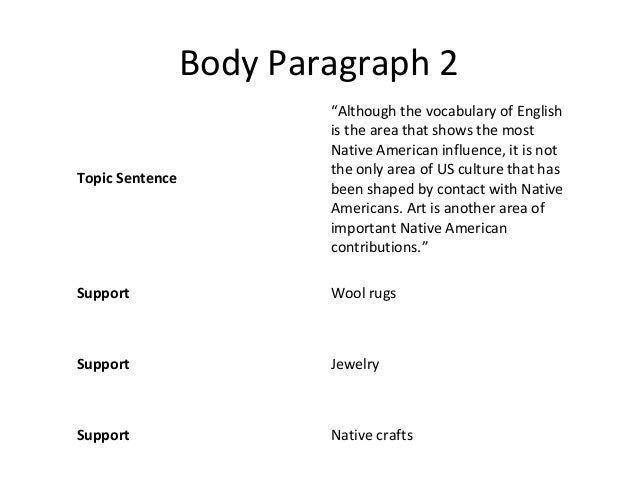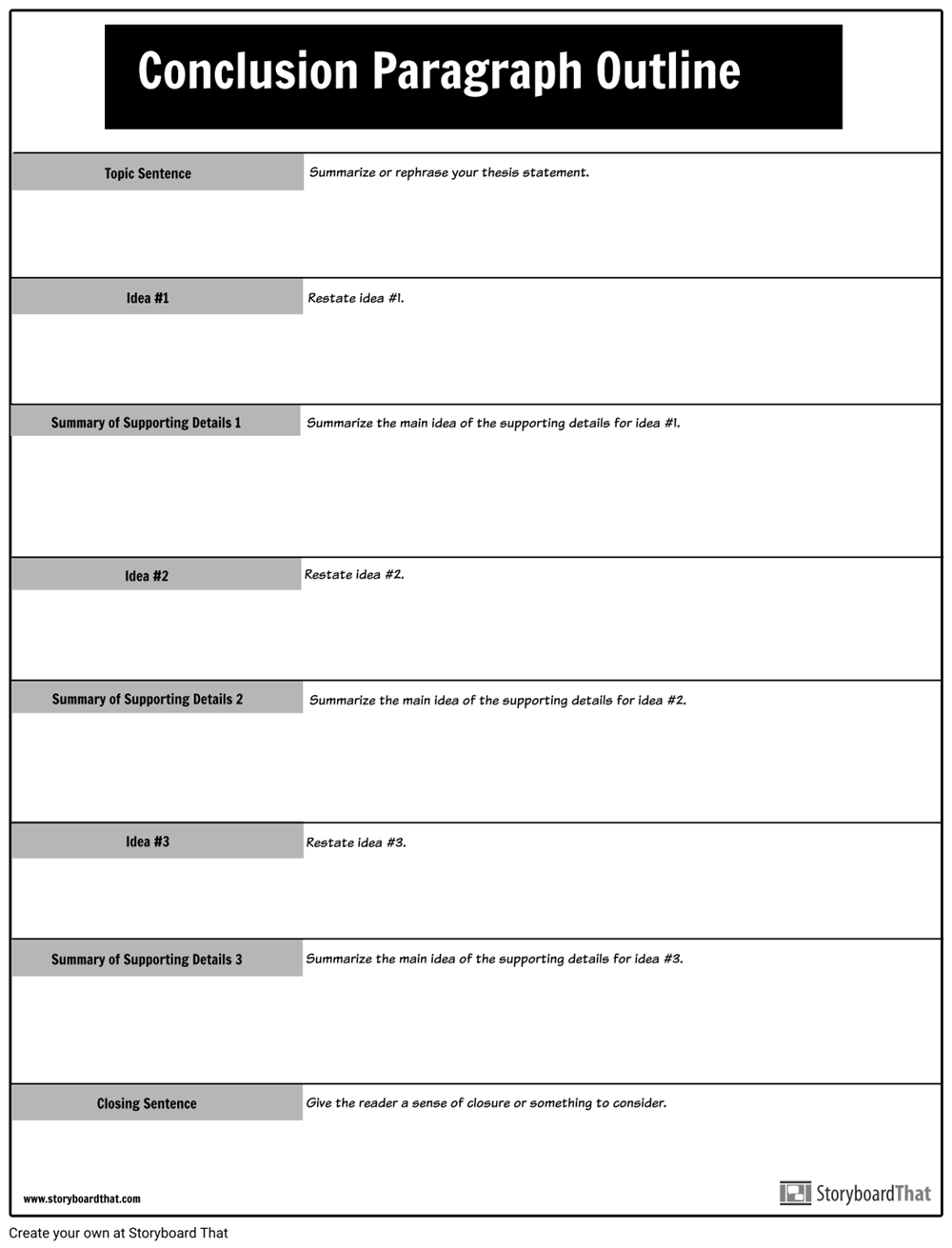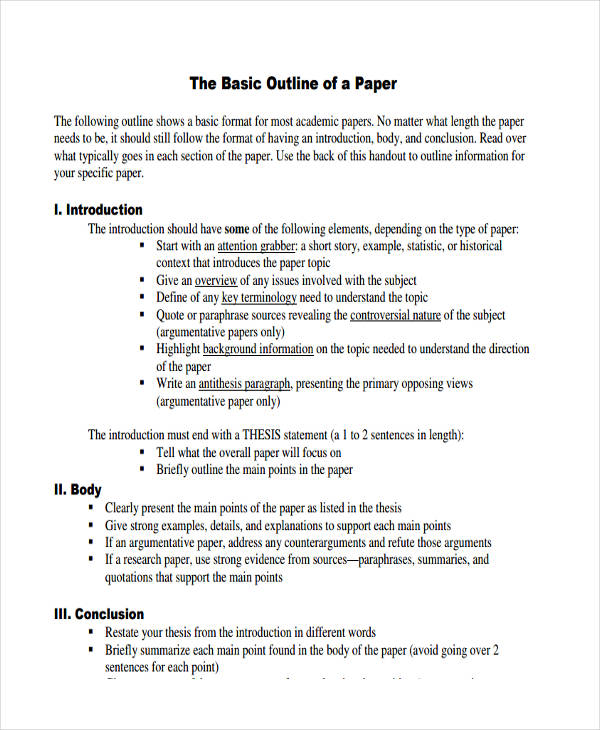
Summarize the main points of your research Related: Thesis Statements: Definition and Examples 3. "Clean water is imperative to maintaining ecological balance and protecting the public's health." This element can also be effectively written in one sentence. The thesis statement in your conclusion should be worded differently than what you wrote in your introduction. You can do this by revising the original thesis that you presented in the introduction of your paper. Next, restate the thesis of your research paper. The placement of your conclusion should make its purpose clear. TIP: Avoid obvious phrases like "in conclusion," "in summary" or "in closing." These phrases can be useful in oral presentations, but can come across as too obvious and unnecessary when ending an essay.

"The increase in water pollution since 2010 has contributed to the decrease in aquatic wildlife as well as the increase in unsafe drinking water." Here's an example of the first sentence of a conclusion in a paper about water pollution: This part of your conclusion should be clear and concise and state only the most important information. Typically, one sentence can be enough to restate the topic clearly, and you will want to explain why your topic is important. Your first step when writing your conclusion should be to restate your research topic.

When writing your conclusion, you can consider the steps below to help you get started: 1.
Conclusion paragraph outline how to#
Related: How to Write a Conclusion (With Tips and Examples) How to write a conclusion for your research paper Gives the research paper a sense of completeness Stresses the importance of your thesis statement Conclusions can also serve as a basis for continuing research, creating new ideas to resolve an issue you highlighted in your paper or offering new approaches to a topic. Concluding statements can also help to refocus the reader's attention on the most important points and supporting evidence of your arguments or position that you presented in your research. Related: 19 Types of Research (With Definitions and Examples) Importance of a good conclusionĪn effective conclusion for a research paper reminds your readers of the strength and impact of your argument. You might state how you feel about outcomes, results or the topic in general. This type of conclusion connects your thoughts to the research you present. However, these types of conclusions can be effective because they present new ideas that build off of the topic you initially presented in your research.Įditorial conclusion: In an editorial conclusion, you are presenting your own concluding ideas or commentary. This is considered the most common form of conclusion, though some research papers may require a different style of conclusion.Įxternalizing conclusion: An externalizing conclusion presents points or ideas that may not have been directly stated or relevant to the way you presented your research and thesis. Summarizing conclusion: A summarizing conclusion is typically used for giving a clear summary of the main points of your topic and thesis.

There are three main types of conclusions: Related: How To Write a Research Question: Steps and Examples Types of conclusions for research papersĭepending on your research topic and the style of your paper, you may choose to write your conclusion according to specific types. Include a call for action or overview of future research possibilities Restate your topic and why it is importantĪddress opposing viewpoints and explain why readers should align with your position

What is a conclusion?Ī conclusion is the final paragraph of a research paper and serves to help the reader understand why your research should matter to them. In this article, we'll discuss what a conclusion is, the importance of a good conclusion, how to write a conclusion for your research paper, some tips and common pitfalls to avoid when writing one, an example conclusion and frequently asked questions about conclusions. An effective conclusion paragraph can also add impact to what you have presented in your paper. Concluding paragraphs should be clear and sum up what you have presented in your research without sounding redundant. Writing a conclusion for your research paper can be difficult.


 0 kommentar(er)
0 kommentar(er)
